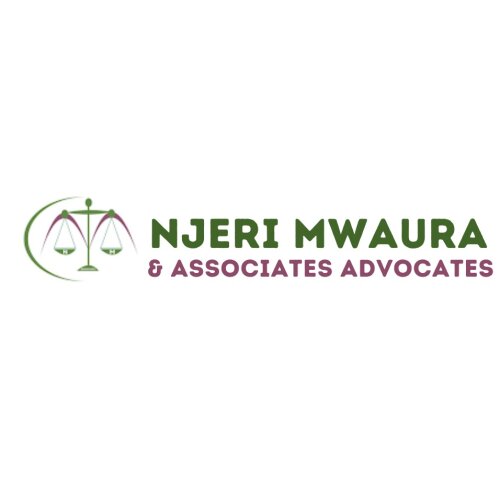Best Water Law Lawyers in Kenya
Share your needs with us, get contacted by law firms.
Free. Takes 2 min.
Or refine your search by selecting a city:
List of the best lawyers in Kenya
Legal guides written by Adroit Law LLP:
- Kenya Launches Digital Nomad Visa: A Gateway for Remote Workers
- Navigating the Payment System License Maze in Kenya
- Navigating the Complexities of Mining Licenses and Permits in Kenya: A Look into Artisanal and Large-Scale Operations
About Water Law in Kenya
Water Law in Kenya refers to the legal framework governing the use, management, protection, and conservation of water resources within the country. Water is a vital resource for individuals, communities, agriculture, industries, and wildlife. In Kenya, Water Law has evolved to meet the needs of its people and economy while ensuring sustainable and equitable distribution. The legal foundation is primarily set by the Water Act, 2016, which outlines how water resources are to be regulated, protected, and utilized by both public and private entities. The law also establishes institutions responsible for managing water resources, supply, and sanitation services.
Why You May Need a Lawyer
There are many situations where legal help in Water Law becomes essential. Common scenarios include disputes over water access or rights, such as conflicts between neighbors regarding river or borehole usage. Landowners may require legal assistance for obtaining water use permits or addressing violations of water regulations. Businesses and industries often need legal support to ensure compliance with water extraction, discharge, and environmental standards. Additionally, communities affected by large infrastructure projects may need legal representation for compensation or resettlement negotiations. A Water Law lawyer can help demystify legal requirements, represent you in court, and ensure your rights and interests are protected in all water-related matters.
Local Laws Overview
The key legal instrument for Water Law in Kenya is the Water Act, 2016. This law created several important bodies, including the Water Resources Authority (WRA), responsible for regulating water use and ensuring the sustainable management of water resources. The National Water Harvesting and Storage Authority and Water Services Regulatory Board handle other essential functions like supply, regulation, and infrastructure. Water users need permits for abstraction or effluent discharge, and strict guidelines are set for water pollution control and water catchment area protection. County governments share responsibility for water and sanitation services under the devolved system. Understanding these local laws is crucial for anyone using, supplying, or managing water resources in Kenya.
Frequently Asked Questions
What is the main law governing water resources in Kenya?
The Water Act, 2016 is the primary legislation regulating the management, use, and protection of water resources in Kenya.
Who can apply for a water use permit?
Any individual, company, community, or institution that wishes to abstract, divert, store, or use water from a public water source must apply for a water use permit from the Water Resources Authority.
How are water rights determined?
Water rights are determined based on permits issued by the Water Resources Authority, which considers factors such as intended use, environmental impact, and availability.
What should I do if my neighbor is using more than their fair share of water?
You should first try to resolve the issue amicably. If that fails, report the matter to the Water Resources Authority or seek help from a lawyer experienced in Water Law for dispute resolution.
Are there penalties for polluting water sources in Kenya?
Yes, there are significant penalties for polluting water sources, including fines, imprisonment, or both, as stipulated in the Water Act, 2016 and under relevant environmental laws.
Can a community claim rights over a water source?
Yes, communities can apply for permits to manage and use nearby water sources. They are encouraged to form Water Resource User Associations to collectively manage and protect these resources.
What role do county governments play in water management?
County governments are responsible for providing water and sanitation services at the local level and work in coordination with national agencies to manage these services.
How do I challenge a decision by the Water Resources Authority?
You can appeal decisions made by the Water Resources Authority to the Water Tribunal, an independent body established by the Water Act, 2016. Legal representation is often advisable in these cases.
Do I need environmental assessment for a water development project?
Yes, most significant water development projects require an Environmental Impact Assessment as mandated by environmental and water laws in Kenya. This ensures that potential impacts are identified and managed.
Is rainwater harvesting regulated by law?
Rainwater harvesting is encouraged in Kenya and is subject to general environmental health and safety standards. On a larger scale, permits and compliance with regulations may be required.
Additional Resources
Several resources and organizations can assist with Water Law matters in Kenya:
- Water Resources Authority (WRA) - Regulates water use and issues permits - Water Services Regulatory Board (WASREB) - Oversees water services and consumer protection - National Environment Management Authority (NEMA) - Handles environmental assessments and standards - County Department of Water and Sanitation - Manages local water supply and sanitation - Water Tribunal - Handles appeals and disputes related to water law - Kenyan Bar Association - Can help you find a lawyer specializing in Water Law - Community Water Resource User Associations - Local groups advocating for sustainable water management
Next Steps
If you need legal assistance in Water Law in Kenya, start by identifying the nature of your issue and gathering relevant documents or evidence. Contact a qualified lawyer with experience in Water Law, who can explain your rights and responsibilities and recommend the best way forward. You may also approach relevant authorities such as the Water Resources Authority or Water Tribunal for guidance. It is important to act early, especially in cases of disputes or compliance requirements, to avoid penalties or loss of water rights. Consider joining local or community water user associations for support and advocacy. Legal experts can provide valuable insights and represent your interests in negotiations, permit applications, disputes, or court proceedings.
Lawzana helps you find the best lawyers and law firms in Kenya through a curated and pre-screened list of qualified legal professionals. Our platform offers rankings and detailed profiles of attorneys and law firms, allowing you to compare based on practice areas, including Water Law, experience, and client feedback.
Each profile includes a description of the firm's areas of practice, client reviews, team members and partners, year of establishment, spoken languages, office locations, contact information, social media presence, and any published articles or resources. Most firms on our platform speak English and are experienced in both local and international legal matters.
Get a quote from top-rated law firms in Kenya — quickly, securely, and without unnecessary hassle.
Disclaimer:
The information provided on this page is for general informational purposes only and does not constitute legal advice. While we strive to ensure the accuracy and relevance of the content, legal information may change over time, and interpretations of the law can vary. You should always consult with a qualified legal professional for advice specific to your situation.
We disclaim all liability for actions taken or not taken based on the content of this page. If you believe any information is incorrect or outdated, please contact us, and we will review and update it where appropriate.
Browse water law law firms by city in Kenya
Refine your search by selecting a city.

















